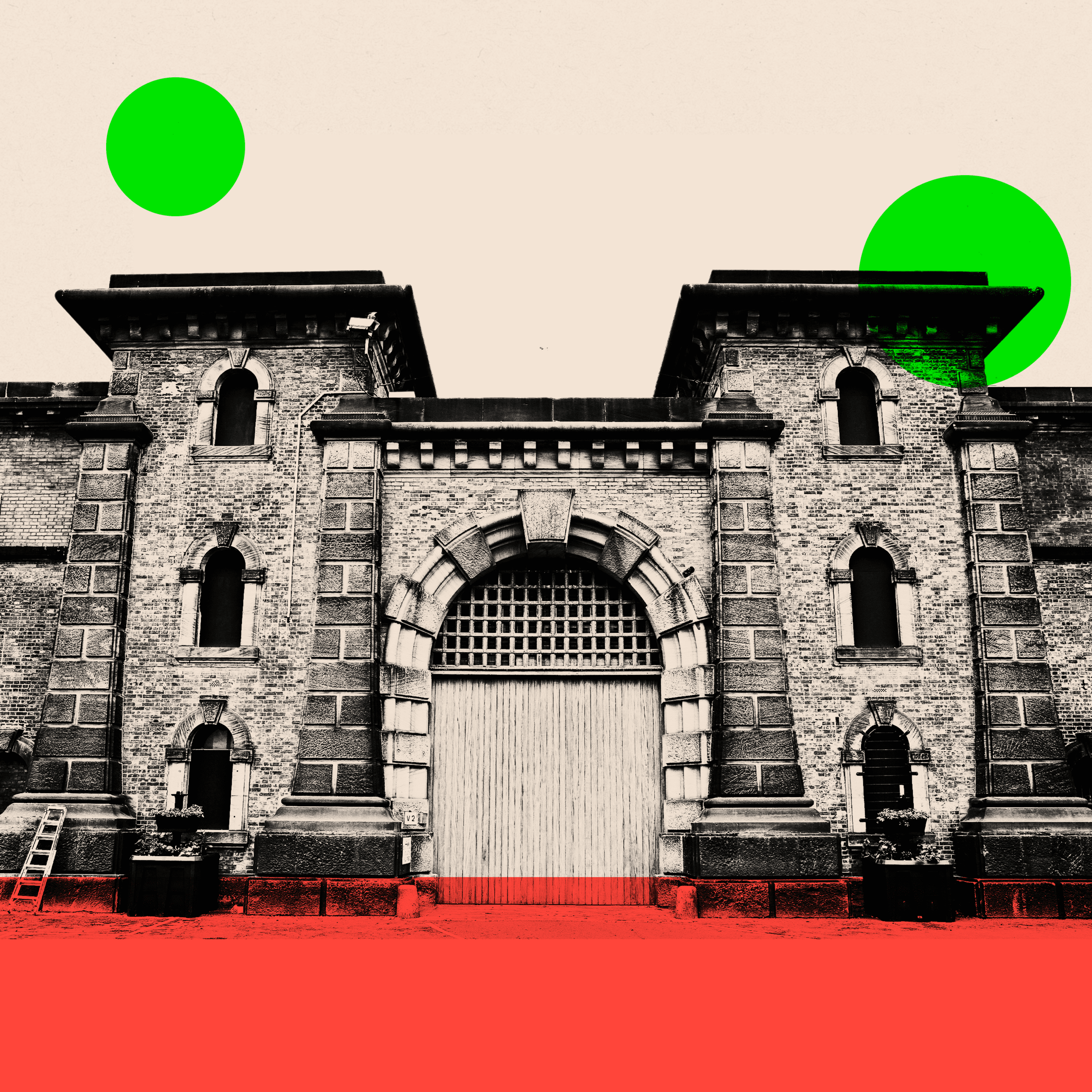
Of all the bold announcements a brand-new government would like to be making, the early release of prisoners surely isn’t among them.
But on Friday ministers will say that some offenders in England and Wales will be let out after they’ve completed 40% of their sentences, the BBC has confirmed. Currently prisoners serving standard determinate sentences - that is, those with a fixed end date - are released after serving 50%.
This change in policy won’t include serious criminals such as sex offenders, rapists and terrorists. Instead, shoplifters and those convicted of drugs offences are among those likely to be released sooner.
Sources say it will most likely amount to a number in the low thousands leaving prison early in the coming weeks and months.
It’s a short-term fix that will free up cells quickly. And it’s happening because there simply aren’t enough resources to cope with the rising number of people being locked up.
There have been numerous warnings, including from the Prisons’ Governors' Association, that the estate was “just days away” from reaching full capacity. On 5 July official figures showed the prison population was 87,453 out of a total capacity of 88,864 - meaning there were just 1,411 spaces left.
A member of staff at HMP Wandsworth in south-west London, one of the worst-affected prisons, told me that it was “bursting at the seams” and officers were having to put prisoners in cells that should have been taken out of action.
“We put two inmates in a cell where the toilet was overflowing,” the member of staff said. “We had nowhere else to put them… The smell was so bad you couldn’t breathe.”
The previous Conservative government had already resorted to emergency measures to deal with the crisis. At first, some inmates were let out under supervision up to 18 days early and later, as the situation grew even more dire, up to 70 days early.
Then in October last year, the Ministry of Justice stopped all non-essential maintenance work because it couldn’t afford to close cells at a time when every space was needed.
'Shocking'
Two factors in particular have driven the growth in prison numbers. The number of people on remand has risen by 84% since 2019 and now accounts for 20% of the overall prison population, according to the Institute for Government think tank. And the proportion of those being recalled after breaching the terms of their licence has also risen sharply – up 72% since 2019.
Both these factors have been fuelled by a post-Covid backlog in the criminal courts, which has meant people waiting for a lot longer for hearings and trials.
Also, even though recorded crime has fallen according to the Office for National Statistics, changes in sentencing policy have contributed to more and longer custodial sentences.
Asked by reporters during his visit to Washington DC what he had discovered now he was in office, Sir Keir Starmer, the prime minister, said that “some of what we have found is shocking” and singled out prisons in particular. He added that “the situation is worse than I thought it was”.
However, meetings between Labour and officials about how to tackle the looming crisis began weeks ago, during the election campaign.
Arguably, Labour's anticipated early-release policy is in line with the views of the newly appointed prisons minister. James Timpson told Channel 4 News earlier this year that a third of inmates shouldn’t be in prison in the first place.
Overcrowding has exacerbated many of the problems at the heart of the penal system. Too many inmates means less attention on rehabilitation, prison staff have persistently told me, because staff are spread more thinly. This affects their ability to provide work and training for inmates.
Most inmates are eventually released, and how they’re treated inside can shape their behaviour once they’re out in the community - charites such as the Prison Reform Trust vigorously argue for better conditions partly for this very reason.
But there are pitfalls to the government’s plan. Critics warn that it won’t make overcrowding go away and that early releases could in fact create new problems.
More from InDepth
Can we change how our brains age? These scientists think it’s possible
- Published10 July 2024
As Keir Starmer heads to the US, Labour readies for a possible Trump presidency
- Published9 July 2024
After France's election shock comes the real power struggle
- Published8 July 2024
Last year Charlie Taylor, the chief inspector of prisons in England and Wales, described the issue of overcrowding as a “ticking time bomb” but warned early releases would not be enough to prevent it “blowing up”.
For instance, early releases have a knock-on effect for the Probation Service. When offenders on determinate sentences are released early, they are supervised by probation officers and must adhere to certain conditions, such as sticking to curfews.
But the Probation Service is already struggling with its workload. A report published by the HM Inspectorate of Probation earlier in the year said senior probation officers “had too many responsibilities which get in the way of their focus on the quality of work delivered by their teams”.
Jason Barnfarther, 23, who recently served time in prison for drug offences, described being told he was to be released sooner than expected. “All of a sudden, within 24 to 48 hours, you’re getting ushered out the building,” he said.

Jason Barnfarther says early releases have a negative impact on the resettlement of offenders
This can make probation officers’ jobs even more challenging. Confusion over offenders’ release dates can cause problems when it comes to finding accommodation for them.
“You can release people early as much as you want, but if you don’t resettle them, it’s not going to do anything,” said Barnfather.
There are concerns that if the Probation Service can't cope, then offenders could miss curfews and potentially reoffend, meaning more recalls to prison. This will do little to ease overcrowding and rebuild public confidence.
Early releases are also unlikely to be a popular move with some victims whose lives have been significantly impacted by crime. Some argue for tougher and longer sentences as a deterrent and punishment.
The Victims Commissioner for London, Claire Waxman, said that the previous government’s policy of releasing prisoners up to 70 days early “notably made the presumption that stalkers and domestic abusers are eligible. We know that reoffending rates for offences like these are high, and so I urge this government to exempt domestic abuse and stalking". However, I understand that the current government is considering not releasing those convicted of such offences early.
Prisoners don’t have a lot of public sympathy - after all, they’ve broken the law and are being punished for it. But an overcrowding crisis could have serious consequences both for them and staff, who are often working longer hours and processing more inductions.
As one prison governor put it: “This could cost lives, because staff are under immense pressure and are worried they might miss something, which could lead to an inmate taking their life or seriously self-harming.”
This issue will be the first big test faced the new government. How it responds is sure to be scruitinised closely by critics.
Top picture: Getty Images
BBC InDepth is the new home on the website and app for the best analysis and expertise from our top journalists. Under a distinctive new brand, we’ll bring you fresh perspectives that challenge assumptions, and deep reporting on the biggest issues to help you make sense of a complex world. And we’ll be showcasing thought-provoking content from across BBC Sounds and iPlayer too. We’re starting small but thinking big, and we want to know what you think - you can send us your feedback by clicking on the button below.
Get in touch
InDepth is the home for the best analysis from across BBC News. Tell us what you think.

